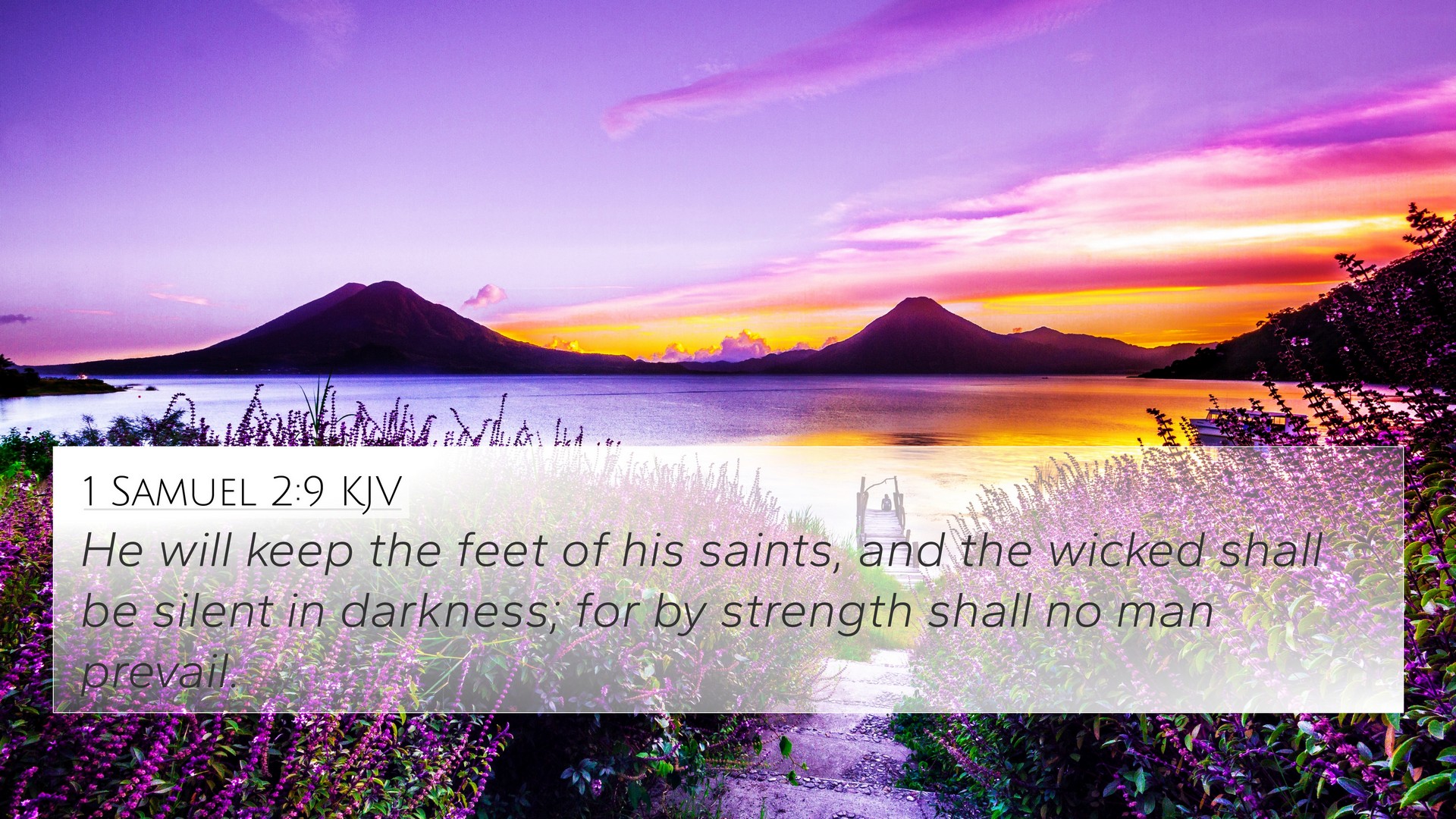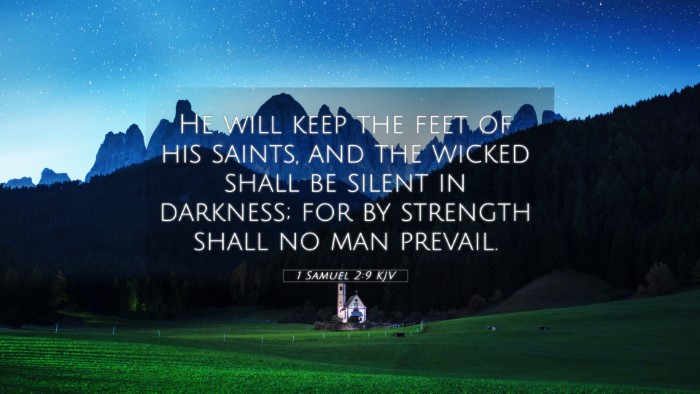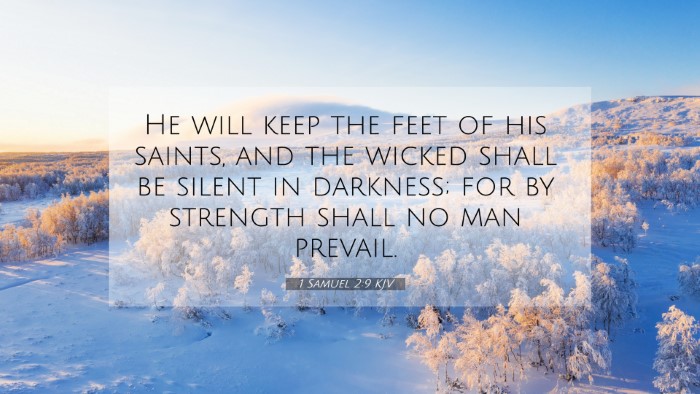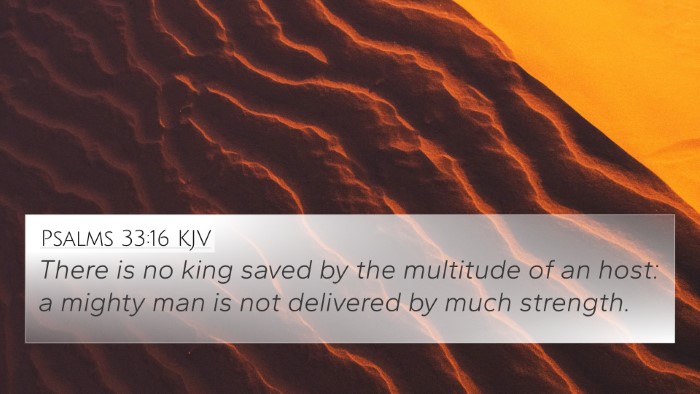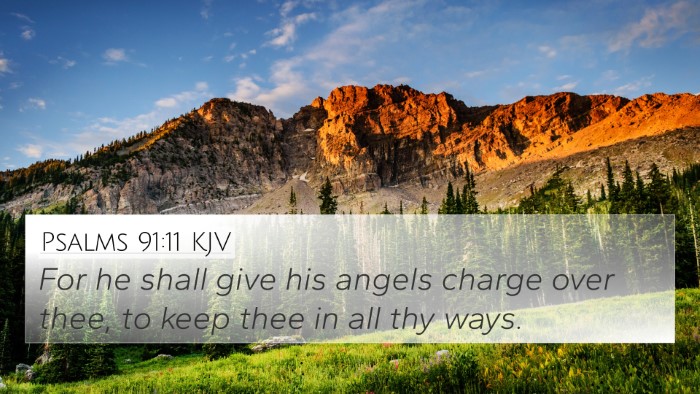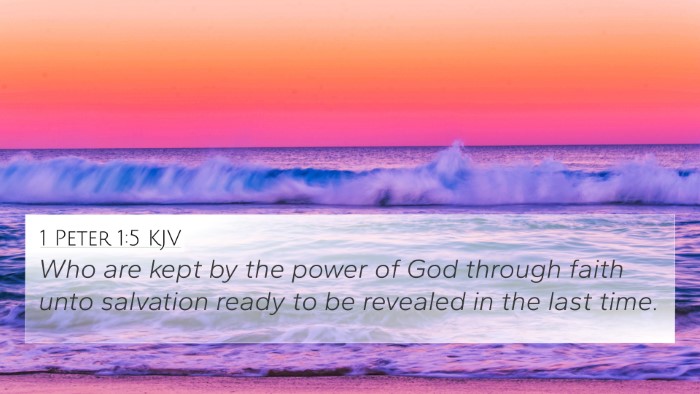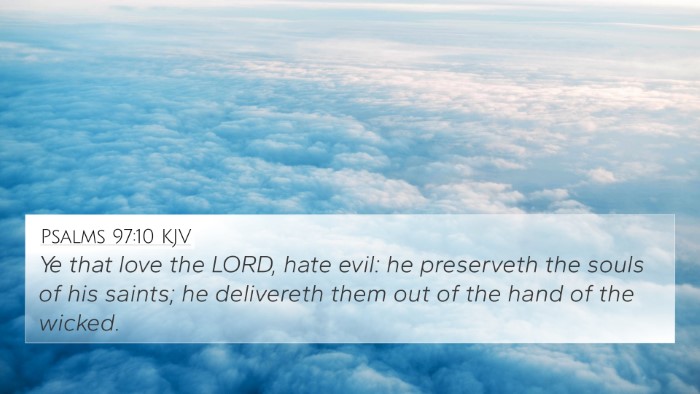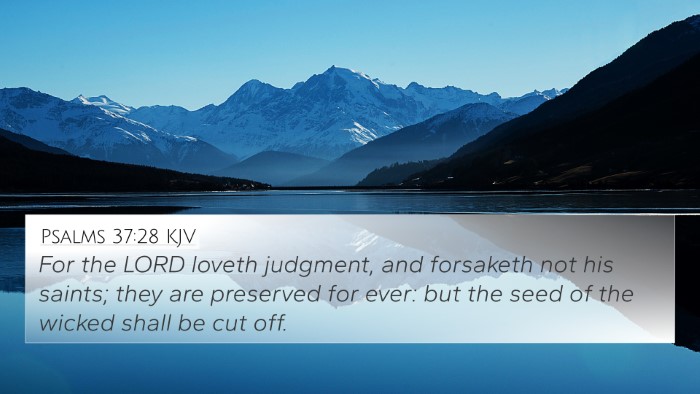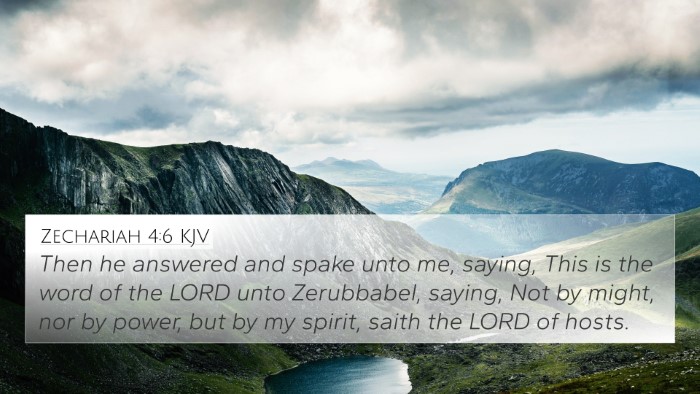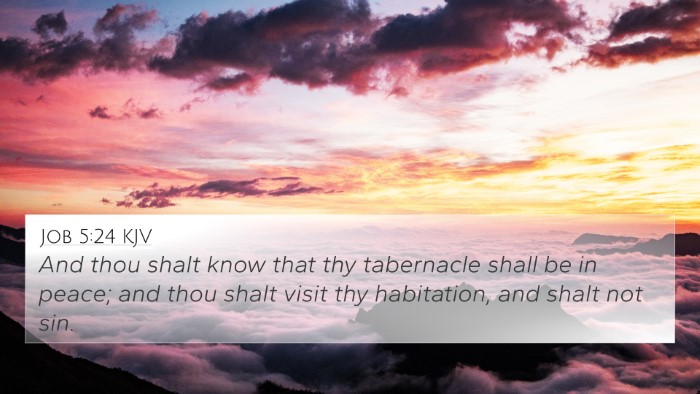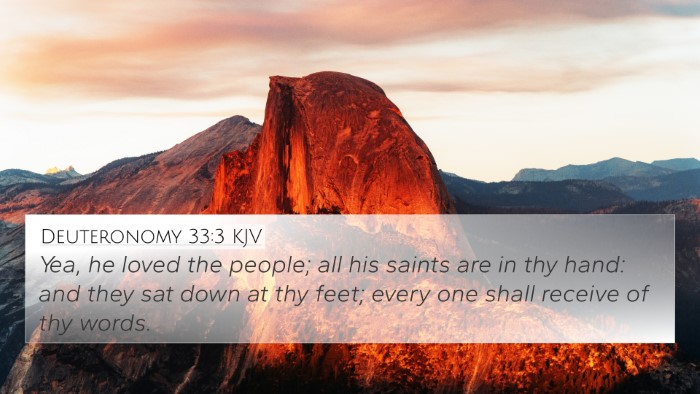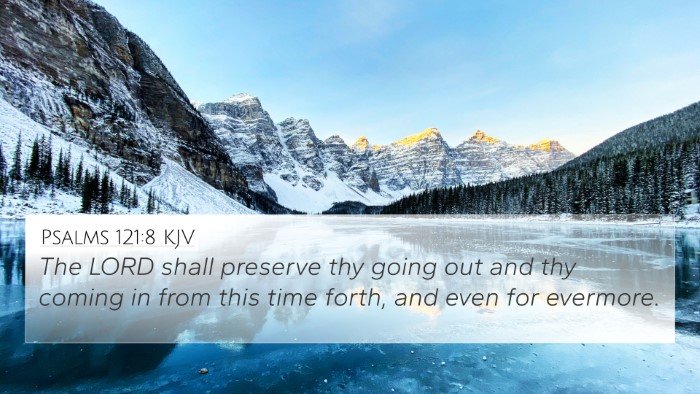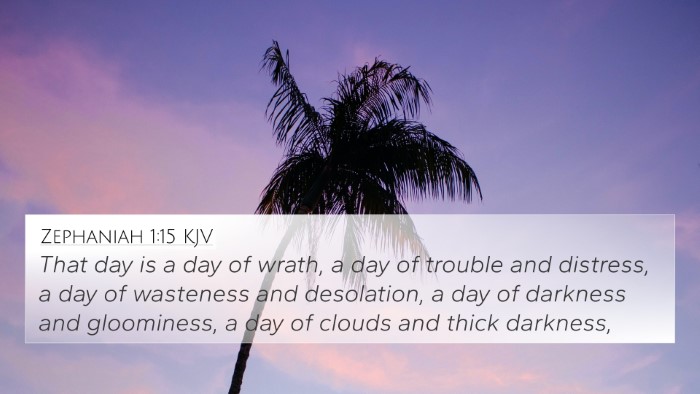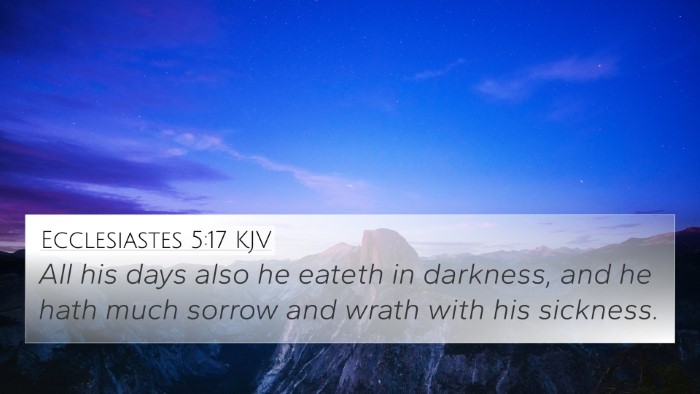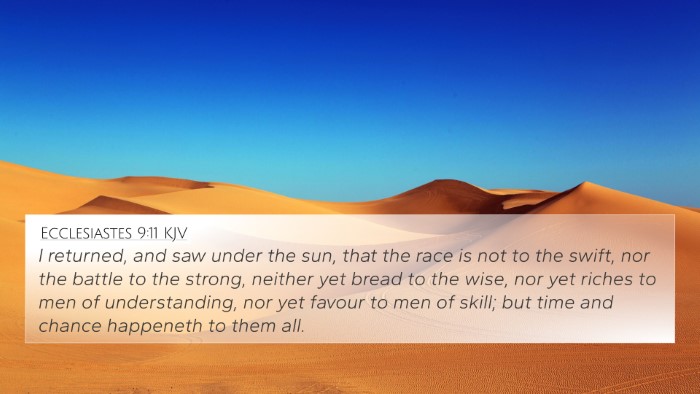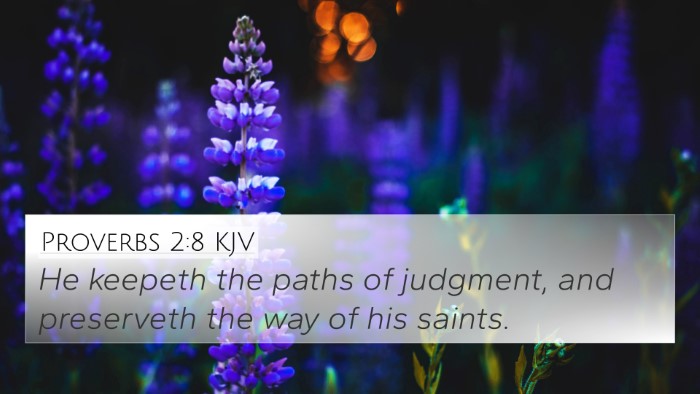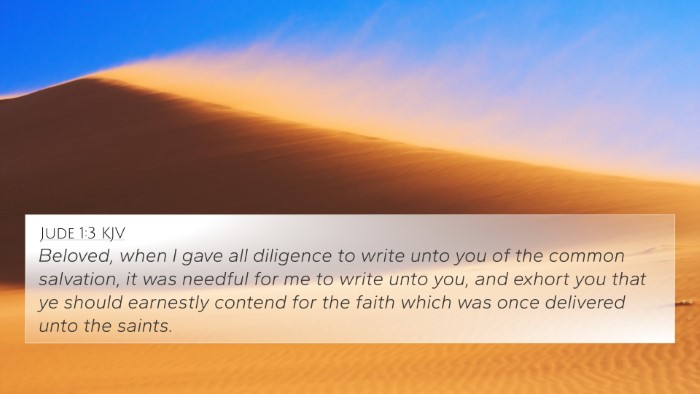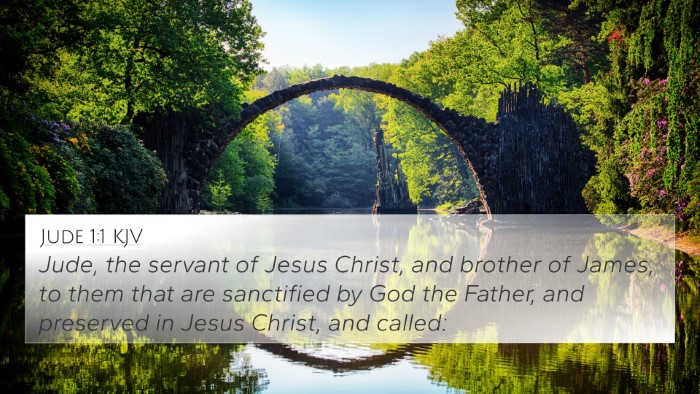Understanding 1 Samuel 2:9
The verse 1 Samuel 2:9 states: "He will guard the feet of His saints, but the wicked shall be silent in darkness. For by strength no man shall prevail." This verse encapsulates the themes of divine protection and the futility of human strength in the face of God's sovereignty.
Verse Meaning and Commentary
Divine Protection: The phrase "He will guard the feet of His saints" suggests that God provides protection and support to those who are faithful to Him. Matthew Henry notes that this metaphor of guarding one's feet implies both guidance and safeguarding from spiritual and physical dangers.
Contrast with the Wicked: The latter part of the verse, "but the wicked shall be silent in darkness," indicates a stark contrast between the fate of the righteous and that of the wicked. Albert Barnes interprets this silence as a result of their inability to stand against God's judgment, emphasizing the idea that those who oppose God will ultimately face dire consequences.
The Futility of Human Strength: The concluding statement, "For by strength no man shall prevail," is a powerful reminder of the limitations of human effort. Adam Clarke explains that no amount of personal strength or worldly effort can guarantee victory, highlighting the necessity of reliance on God's power for true success.
Key Themes
- Reliance on God: The verse stresses the importance of placing trust in God rather than in one's abilities.
- Justice and Judgment: It reflects God's righteous judgment against evil and His protection over the righteous.
Cross-References
This verse can be linked to several others that support its themes:
- Psalms 37:28: "For the Lord loves justice and does not forsake His saints; they are preserved forever, but the children of the wicked shall be cut off."
- Proverbs 10:30: "The righteous will never be removed, but the wicked will not inhabit the earth."
- Isaiah 54:17: "No weapon formed against you shall prosper, and every tongue which rises against you in judgment you shall condemn."
- Romans 8:31: "What then shall we say to these things? If God is for us, who can be against us?"
- Philippians 4:13: "I can do all things through Christ who strengthens me."
- 1 Peter 5:10: "But may the God of all grace, who called us to His eternal glory by Christ Jesus, after you have suffered a while, perfect, establish, strengthen, and settle you."
- Isaiah 40:29: "He gives power to the weak, and to those who have no might He increases strength."
- 2 Corinthians 12:9: "But he said to me, 'My grace is sufficient for you, for my power is made perfect in weakness.'"
- Job 5:12: "He frustrates the devices of the crafty, so that their hands cannot carry out their plans."
- Psalms 91:11: "For He shall give His angels charge over you, to keep you in all your ways."
Inter-Biblical Connections
The exploration of 1 Samuel 2:9 reveals remarkable connections with other scriptures, illustrating a cohesive biblical narrative regarding God's providential care and the inherent weaknesses of humanity. The comparative analysis demonstrates how intertwined these themes are throughout the Bible.
Thematic Connections
When conducting a comparative Bible verse analysis, one can observe a recurring theme that connects both the Old and New Testaments. The parallels between 1 Samuel 2:9 and verses in Psalms, Proverbs, and even the letters of Paul provide a comprehensive understanding of God’s justice and faithfulness.
Tools for Bible Cross-Referencing
Readers seeking to deepen their understanding can utilize various bible cross-reference tools. These resources, such as Bible concordances and cross-reference guides, are invaluable for identifying and analyzing these interconnections.
Conclusion
In summary, 1 Samuel 2:9 underscores critical biblical principles of divine protection, the judgment of the wicked, and the limitations of human strength. Engaging with the text through careful cross-referencing enriches one's understanding and appreciation of the overarching message of God's sovereignty and the assurance of His care for His people.
